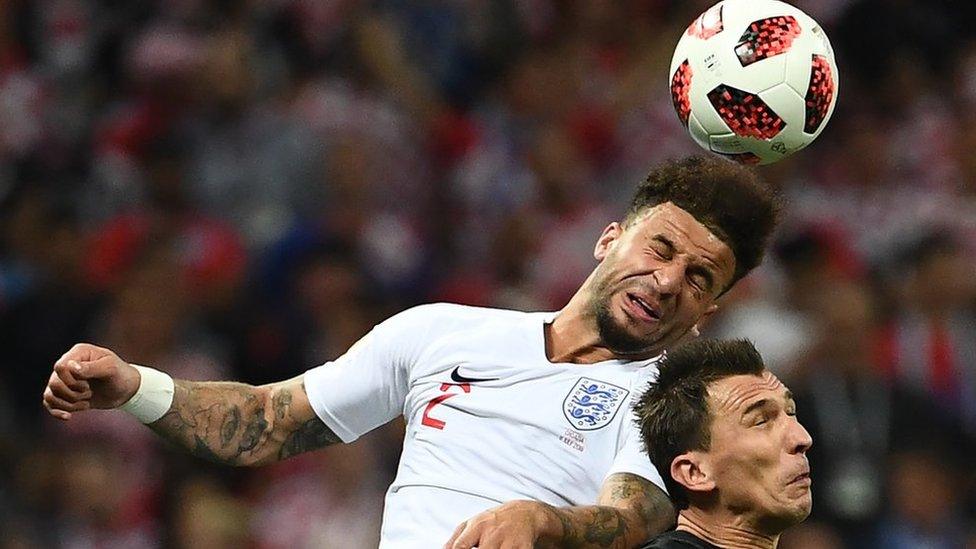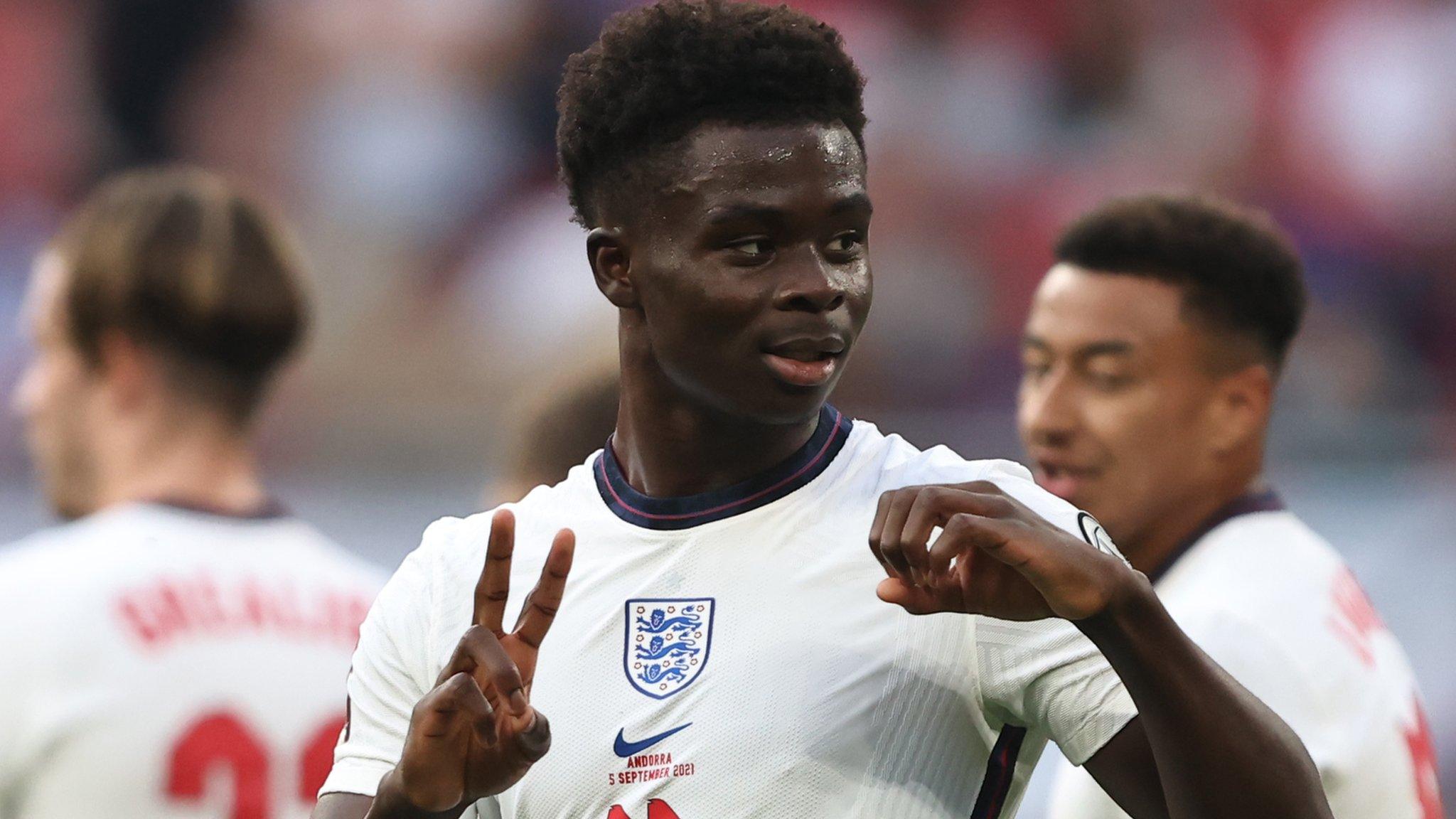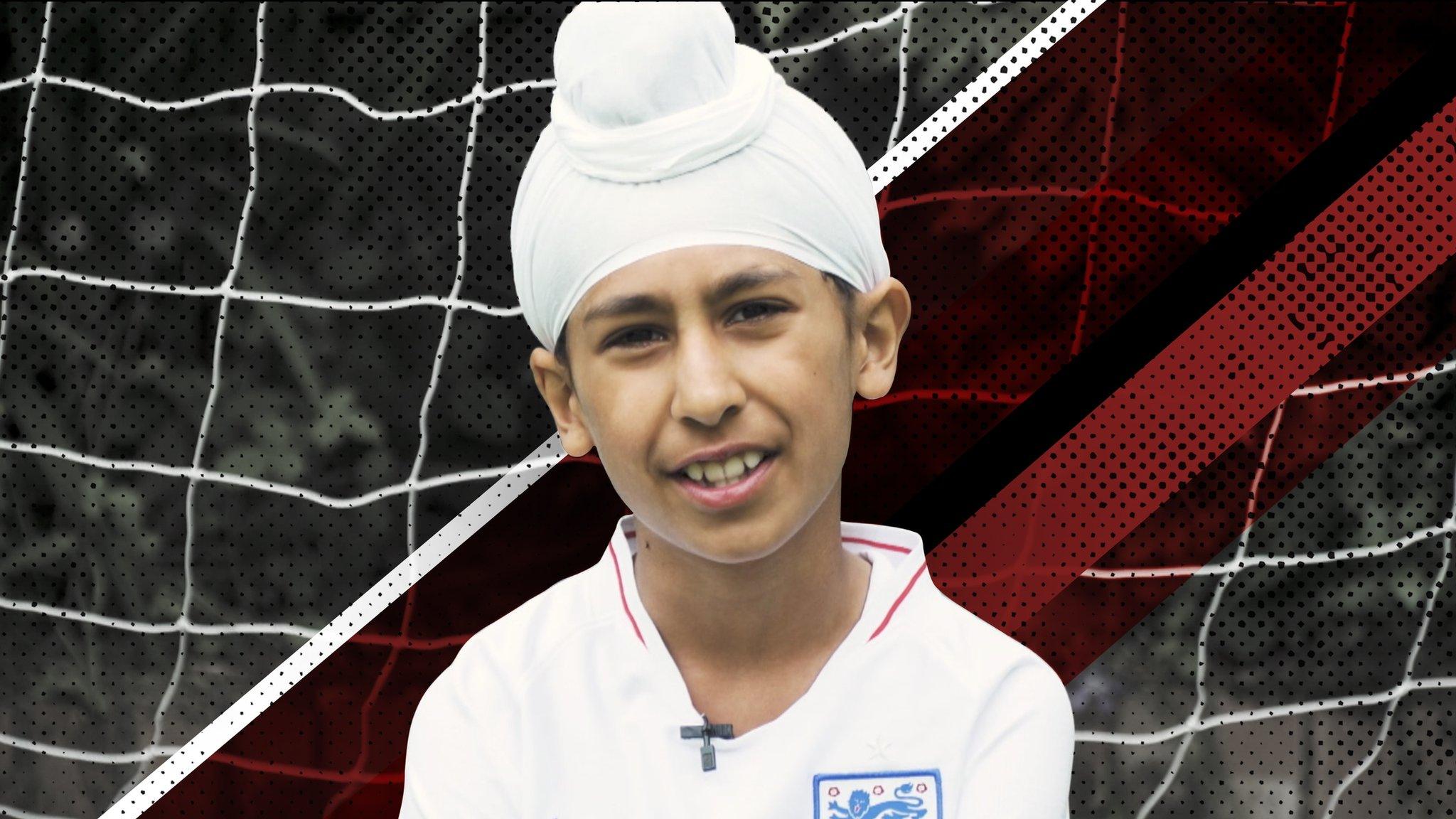Dementia in sport: First adult football match with no headers taking place
- Published
- comments

The first ever adult football match where players will not be allowed to head the ball is taking place later this month.
The news has been welcomed by scientists exploring the possible link between football and dementia - a serious condition that usually only affects older people.
The special match will have very different rules to a normal game - in the first half, heading will only be allowed if the ball is in the penalty box, while in the second half, it will be banned completely.
Retired professionals will take part in the charity match at Spennymoor Town FC on Sunday 26 September.
The match has been organised by the charity Head for Change, a group aiming to promote brain health in sport and support ex-players who are affected by brain conditions like dementia.
Head for Change co-founder Dr Judith Gates said the charity wanted the match "to raise awareness of the dangers of heading".
Dementia can make it difficult for people to remember things. Sufferers can forget who family members are, or what everyday objects are called.
It can make people behave in a way that they have never done before. Sufferers can also struggle to control their emotions and find it difficult to deal with their feelings.
Why are people worried about headers in football?
Concerns around the risks of heading the ball in football have been discussed for many years.
The issue came to the public's attention in 2002 following the death of former West Brom and England player Jeff Astle at the age of 59.
Astle had been diagnosed with dementia, but after his death his brain was examined, and experts believed his condition had been caused by repeated knocks to the head.

The issue of heading in football has been talked about for many years
Professor Willie Stewart, from Glasgow University, is an expert who has been studying the link between headers and dementia - his research claims that professional footballers are up to five times more likely to suffer from dementia than the general public.
He believes that brain diseases like dementia are linked to heading - his studies showed that defenders were more at risk than goalkeepers, who do not head the ball.
Dr Stewart said he was "astonished" it had taken until 2021 for a match like this to be organised.
"This is a long overdue and welcome development," he told the BBC.
He added: "We're asking the question 'Is heading absolutely necessary or is the risk of dementia something we have to accept if a game of football is to go ahead?"
Can children head the ball?
Should young people head footballs?
All children under the age of 12 are currently banned from heading footballs during training.
Players are allowed to use their heads during matches, but headers are banned in practice or training sessions.
In the USA, children under 10 are also banned from heading footballs and there are also restrictions on players aged 11-13 doing headers during football training.
What about other sports?
It is not just football that is involved in the debate - athletes from the world of rugby, boxing and America's NFL game have also been diagnosed with severe brain conditions after regularly taking regular blows to the head.
In 2013, the NFL agreed to pay millions of dollars to players suffering with dementia because of concussions received on the field - massive changes to the US sport have since been made.
Contact in training camps has been halved, and only one contact training session is allowed a week during the season.
- Published23 October 2019
- Published6 September 2021

- Published14 September 2019

